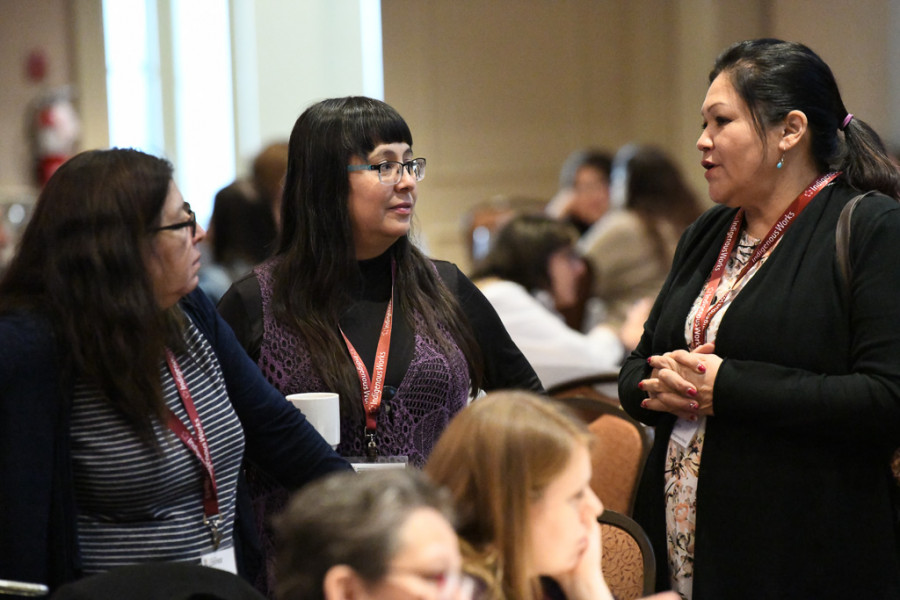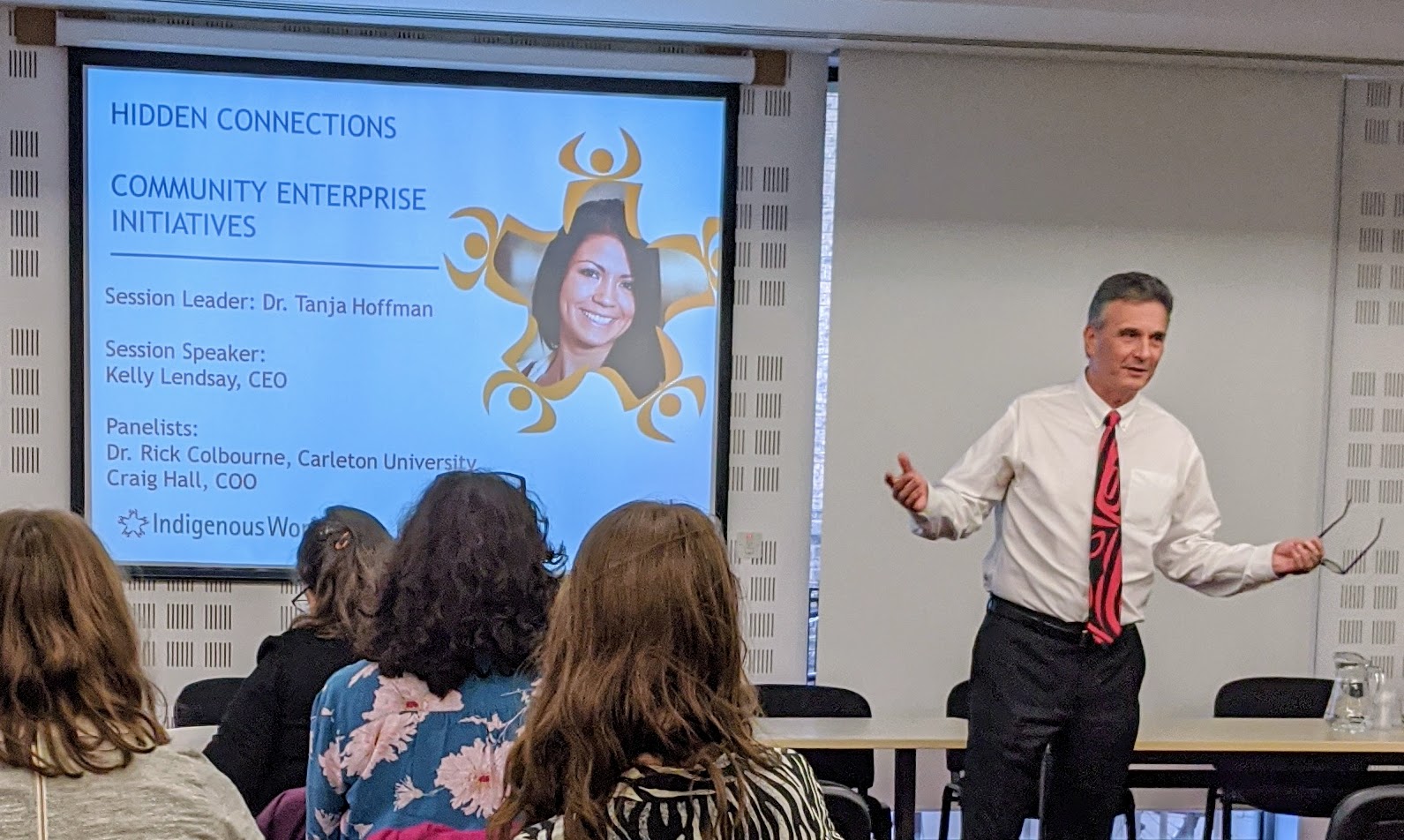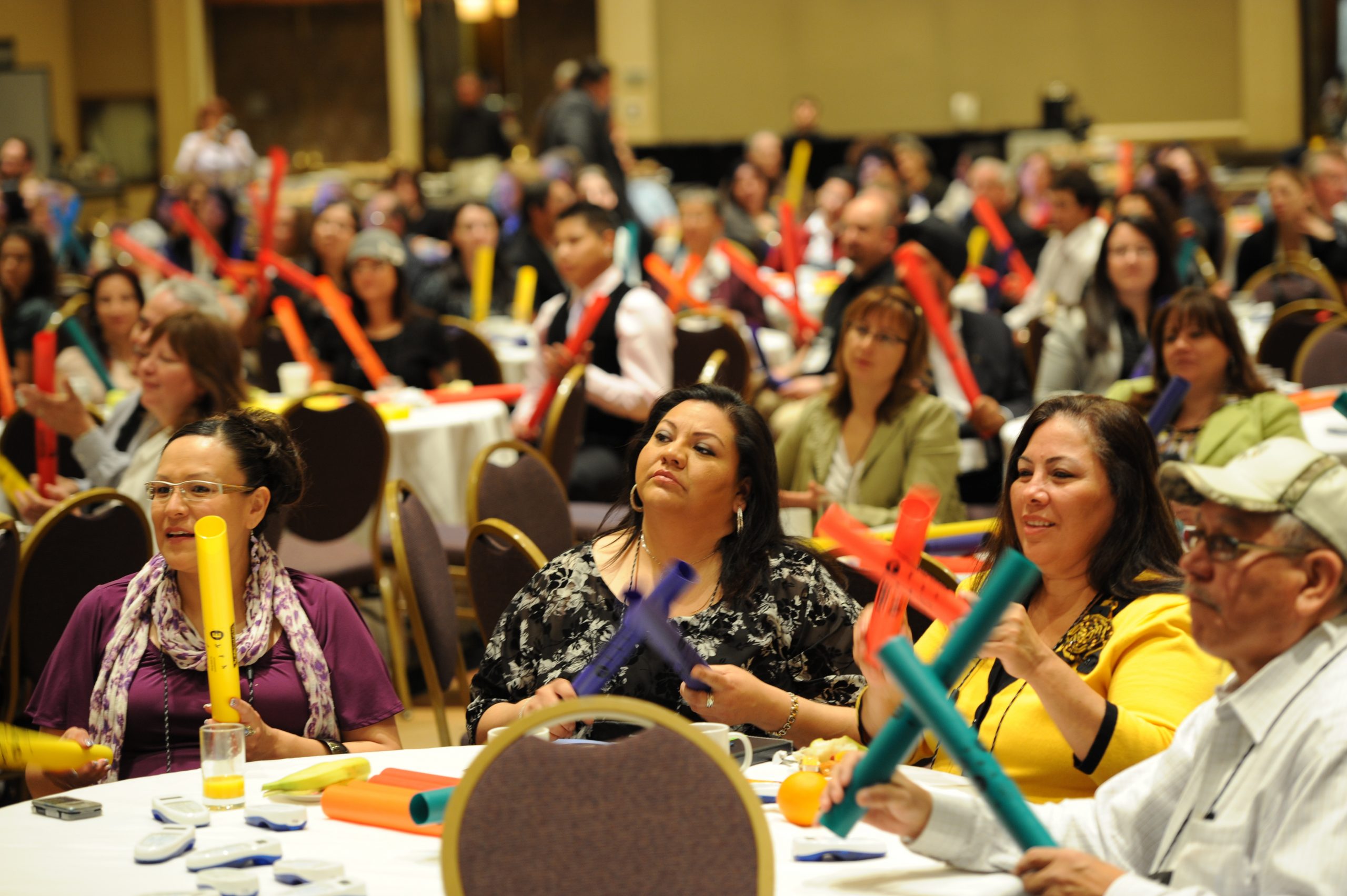Indigenous Works and Carleton’s Sprott School of Business partner to accelerate Indigenous education, research and economic development
Carleton University’s Sprott School of Business and Indigenous Works have signed a Memorandum of Understanding (MOU) to enhance educational, research, and growth opportunities for Indigenous peoples, communities and organizations. Together they will advance two important agendas: expanding workplace inclusion and launching the Luminary Indigenous Innovation initiative.

“In this partnership, we will collaborate with Indigenous Works to develop new research, educational tools, innovation initiatives and networking opportunities to support their ambitious agenda to accelerate workplace inclusion, innovation and economic transformation in Indigenous communities,” said Dana Brown, dean of the Sprott School of Business. “The best outcome of this will be success for the communities in terms of new investments in workplace strategies, business partnerships and research collaborations to achieve sustainable economic growth, employment and well-being.”

“This impact will be mutually beneficial for Sprott, allowing us new insights on research around workplace systems, innovation and socioeconomic development and shared prosperity in Indigenous communities and worldwide. A partnership such as this is an opportunity to share knowledge and connections, to co-create new educational tools, new visions, new roadmaps for the future.”
Indigenous Works is a national organization that was formed in 1998 through a recommendation from the 1996 Report on the Royal Commission on Aboriginal Peoples, with a mandate to improve the inclusion and engagement of Indigenous peoples in the nation’s economy. They have since worked with organizations to advance Indigenous employment, workplace engagement and partnership inclusion. In 2020/2021 they launched Luminary: Advancing Indigenous Innovation for Economic Transformation, Employment and Well-Being to grow the Indigenous research and innovation ecosystem targeting Indigenous business and community socioeconomic priorities. They also run a charity – Kocihta – to help Indigenous youth develop their career potential.
“The goal of business schools is to help develop the talent that’s going to grow our economy, grow our businesses, grow our entrepreneurs,” said Kelly Lendsay, the president and CEO of Indigenous Works. “Secondly, business schools are about helping grow healthy economies in Canada and third, they are about growing research and innovation. It’s imperative that they be inclusive and partnerships such as this can help them get there.”
Agreeing, Dana added:
“In order to be effective in this work, we need to collaborate and look beyond ourselves. We need to continually develop. A partnership such as this is a learning opportunity for us, which translates into better research, greater understanding of our students and possibilities for education, and larger impact. The future of Indigenous economies is the future for all of us and we would be remiss if did not ensure that we are part of the conversation.”

Through the MOU, Kelly hopes to make strides in four key areas:
- Advancing new research collaborations among the academic and Indigenous economic communities by embracing Two-Eyed Seeing as a key framework to respecting both Indigenous and western ways of seeing and knowing.
- Working to better understand the prospectuses and profiles of Indigenous Economic Development Corporations which in turn will help identify opportunities for research and innovation collaborations.
- Creating an understanding about the career motivations, experiences and trajectories of Indigenous Master’s and PhD students.
- Advancing the Indigenous research and innovation ecosystem.
“Post-secondary business schools must engage in reconciliation and Indigenization initiatives but lack basic insights and understandings of, and experience in, partnering with Indigenous communities and organizations,” said Rick Colbourne, assistant professor of Indigenous leadership and management, and assistant dean of equity and inclusive communities at Sprott.

“This partnership will provide insights into, and a model for, developing Indigenous/post-secondary business school partnerships that move beyond Indigenous inclusion towards reconciliation Indigenization strategies – that move away from assimilatory academic practices towards changing how non-Indigenous academic leaders, faculty, staff, students and other stakeholders think and act toward Indigenous peoples.”
“This partnership will break down walls.”
In addition to this MOU, the Sprott School of Business is a founding Luminary Charter Partner.
Currently in its planning phase, Luminary is a six-year initiative to co-create and co-design an Indigenous innovation strategy that will lead to economic transformation, employment and well-being for Indigenous peoples across Canada.
“If we can harness the innovation culture with Indigenous businesses and communities, and grow collaborations among researchers, research agencies, and Indigenous business, we could be developing new products, new service lines, new innovative approaches and solutions that are good for the Canadian economy,” Kelly said. “And Sprott’s commitment is really going to foster this area of economic transformation, employment and well-being.”
He added that the COVID-19 pandemic has shown us all that we need to think about everyone’s mental, physical, social and spiritual health – and, given that, they are working on developing new tools, systems, and approaches to support employers, the academic community, and Indigenous communities and businesses, with the end-goal of increasing wellbeing for people, communities and companies.

Dana added that Sprott signed on as one of the first of the 140 Luminary Partners because she was encouraged by its ambition and potential impact, and it also aligned with the school’s strategic direction.
“In Sprott’s strategic plan, we talk about ‘shared prosperity,’ and the chance to bring the Indigenous economy to the level of the rest of Canada provides exactly that possibility,” said Dana.
“As we come out of the pandemic and seek renewed growth, it would be a missed opportunity if growth is again uneven and unequal, which has not served our societies well. The Luminary Charter brings together the right organizations and talent to achieve its vision of meaningful and sustained impact.”
Another thing that struck Dana was the opportunity that developing the Indigenous economy in Canada can provide for investors and businesses. The Indigenomics Institute, established by Carol Anne Hilton, estimates that the Indigenous economy has the potential to reach $100 billion within 5 years – more than three times its current value.
“Economic development is not just about seeing equality or rectifying past wrongs, as important as both goals are. Opportunities for those who have previously been excluded from our economies is a key growth engine in our economies as well as being essential for our future wellbeing as a deeply inter-connected humanity.”
This partnership between the Sprott School of Business and Indigenous Works is bound to enhance available educational, research, and growth opportunities, while leading to economic transformation, employment and well-being for Indigenous peoples across Canada.